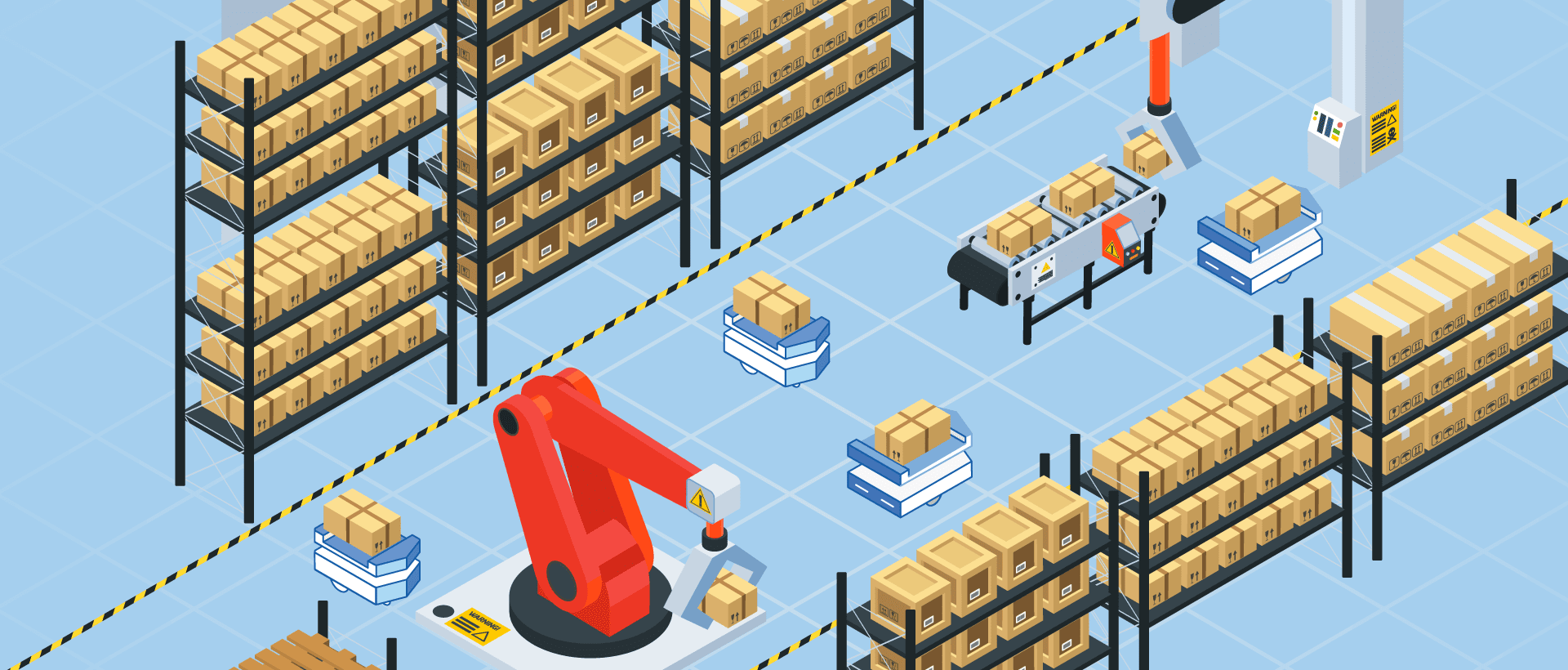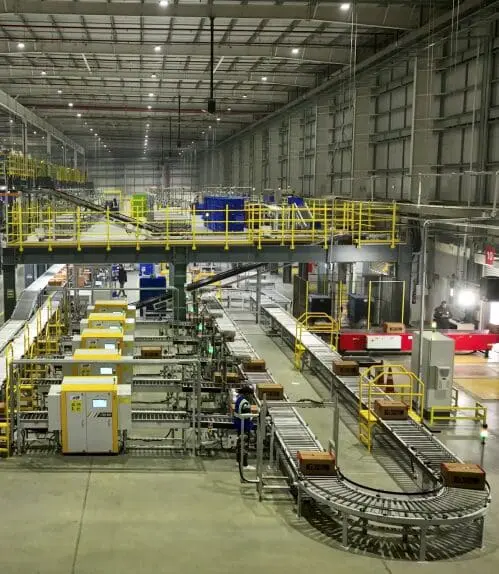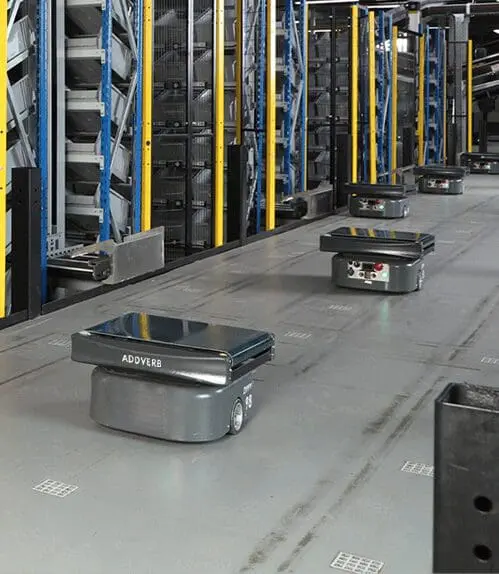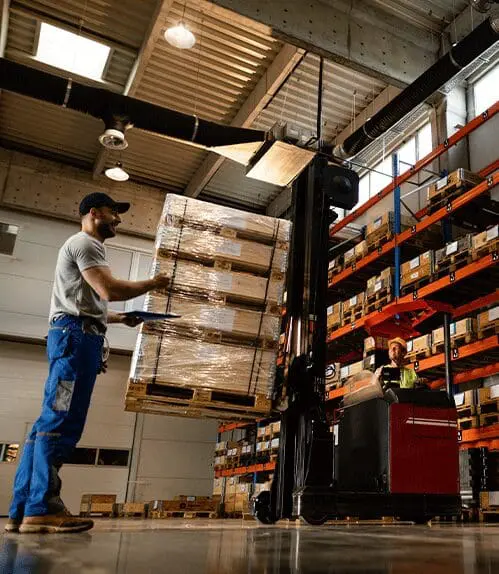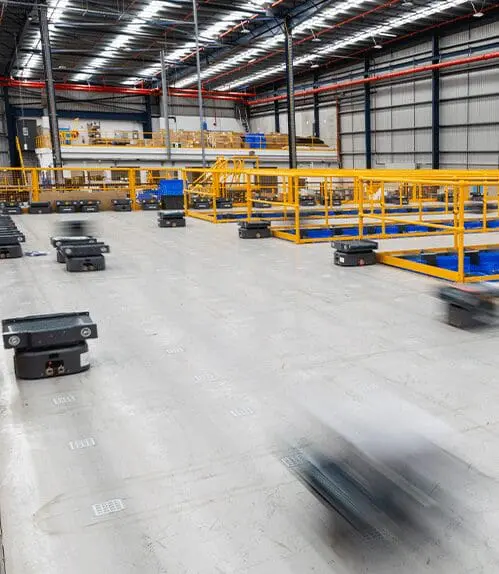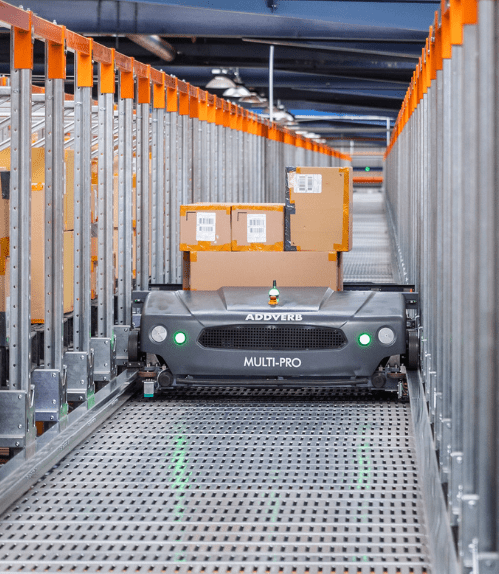Technology has always disrupted manufacturing. The first industrial revolution was driven by the steam engine, which led to the development of large factories symbolised by textile mills. Inspired by Mutton Shops, Henry Ford introduced the Assembly line (immortalised by Charlie Chaplin in Modern Times).
In the 1970s, computer-automated manufacturing provided scales and volumes never seen before. These days, we are at the cusp of another industrial revolution known as “Industry 4.0”. It focuses on transforming static factories into dynamic and smart factories, boosting productivity, improving efficiency, and forever altering the workforce’s composition.
In 2022, the worldwide smart factory market was assessed to be worth USD 129.74 billion, and it is projected to reach approximately USD 321.98 billion by 2032, experiencing a compound annual growth rate (CAGR) of 9.52% from 2023 to 2032.
AGV vs AMR: 9 Key Differences to understand the right fit of your Industry! – Also Read
Industry 4.0 comprises cybernetic systems that incorporate the Internet of Things, Augmented Reality, Big Data, 3D Printing, Simulation, and Robotics, all powered by cloud computing. This revolution is prepared to transform “Static Factories” into “Dynamic” and Smart factories, driving productivity and efficiency while fundamentally altering the workforce’s composition.
The impact of these technologies on the workplace, jobs, and employees will be profound. Therefore, it is imperative for us to understand this manufacturing shift and its subsequent impact on talent management and engagement.
Impact of Robotics in Smart Factories & Various Other Industries
1. Industrial Relations
HR professionals take pride in managing industrial relations, with “Norm Based Settlements” with unions being a hallmark of harmonious industrial relations. However, with “Smart factories,” many manual jobs on the production line will undergo significant changes. Operators, equipped with IoT, Data Analysis, and cobots, will manage entire shifts or floors, resulting in more engaging and meaningful jobs.
This shift will encourage flexibility in work hours, efficient manpower allocation, and a reduction in supervisory roles, ultimately leading to self-managed teams across factories. The manufacturing workforce will increasingly resemble that of IT companies, focusing more on jobs related to Data Analytics. In this scenario, unions will need to reinvent themselves, as the traditional norm-based settlement system may not have a bright future, given that technology will play a more significant role in production than humans.
2. Manpower Planning
Traditional recruitment methods, primarily interviews, are susceptible to inherent biases and inflated resumes. Real-time simulations, based on data points from candidates’ resumes and past experiences, are ready to replace interviews. Augmented Reality in smart factories will be used to assess candidates’ ability to decode dynamic instructions for task completion, offering a more reliable and efficient sourcing process. Companies are already using these technologies for employee onboarding.
Rather than relying on detailed structured job descriptions and work instructions, organisations in smart factories will use augmented reality and IoT to allow remote experts to guide production and maintenance professionals at different sites. This shift will reduce the need for full-time employees and lead to the hiring of experts exclusively for specific projects.
Start-ups like “Flexing-It” are already providing professionals for particular projects. With Industry 4.0 insights, they will play a pivotal role in helping companies manage talent. HR’s role will be crucial in designing projects, and determining which jobs to outsource, and which to keep in-house. A deep understanding of Industry 4.0 technology will provide a competitive advantage to organisations in smart factories this regard.
3. Learning and Development
Currently, due to the large number of employees and the nature of factory production processes, training programs are typically organised during lean months. These programs often offer one-size-fits-all training modules delivered through classroom sessions or conventional e-learning methods. Evaluating the impact of these sessions is challenging, as it is difficult to quantify their effectiveness.
Industry 4.0 in smart factories is set to transform the entire talent development methodology. Training needs will be identified based on data collected from operations, and augmented reality and simulations will decentralise and customise training according to individual needs. With before-and-after training data readily available, the impact of training can be quantified more effectively.
Decentralised blended learning, tailoring training to individual needs, schedules, and locations, will be the way forward. Organisations that prioritise learning ability and adaptability will have a dynamic Learning and Development program that reduces attrition by equipping employees with skills they can depend on in the future. This shift will significantly influence the organisation’s compensation strategy, as there will be less need to accommodate outliers due to their exceptional skills, maintaining internal parity.
4. Talent Engagement
As evident, many of the HR professionals’ tasks in factories, such as settlement negotiations, training administration, and recruitment, are changing. This requires HR professionals in smart factories to adapt their priorities and skill sets.
Future HR professionals will need to combine technical expertise with people management skills. Besides HR analytics, which provides decision points, HR Managers will have more time to engage with employees. Building meaningful connections will be crucial, and the conventional wisdom of “Meaningful Conversations” will take on great significance.
Particularly with a diverse workforce working on key projects but not fitting the traditional “Employee” mould, conversations and connections in smart factories will become extremely important. Through these conversations, HR professionals will need to maintain personal connections, address employee grievances in all forms, and get to know employees as individuals. The ability to engage in these meaningful conversations will be a key criterion for evaluating HR performance.
With high-quality jobs and ample time at their disposal, employees will become more vocal and expressive. HR will need to offer creative avenues for employees to channel their energy. In factories, as in Silicon Valley companies two decades ago, more creative ideas for employee engagement will emerge, revolutionising the approach.
Many experts have referred to the growth driven by Industry 4.0 as “Jobless Growth.” However, this is unlikely to be the case in smart factories. While technology will eliminate mundane manual jobs, it will create engaging, high-end positions in the manufacturing sector. Over the past three decades, organisations have adopted practices such as overtime, apprenticeships, and contract work arrangements to boost efficiency.
These practices have created what the government terms “Bad Jobs” with no future or security. The advent of Industry 4.0, making traditional jobs redundant, offers organisations an opportunity to reinvent themselves, adding value to factory jobs in this new era. Employers will need to leverage technology to create a vibrant workplace and foster an innovative workforce, building on the principles of trust and fairness.
As smart factories become the norm, HR professionals and organisations must adapt to these changes, emphasizing personalised training, decentralised learning, and meaningful employee engagement. By doing so, we can harness the potential of Industry 4.0 to create dynamic, innovative, and highly skilled workforces, ensuring a prosperous future for both businesses and their employees.
Want to know more about how smart factories will revolutionise the future? Click here to hear it from Addverb’s CEO, as he shed lights on human-robot collaboration.
Smart factories are all set to transform the future. If you want to delve deeper into how these innovations are shaping the supply chain landscape, We encourage you to explore the wide range of products from Addverb and effectively improve the productivity of your business.
